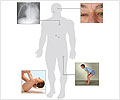Alglucosidase Medication Information
Get detailed information on Alglucosidase, including pronunciation, uses, dosage guidelines, indications, and instructions on how and when to take it and when to avoid it.
The updated prescription information on Alglucosidase provides an overview of possible side effects, precautions, warnings, and storage tips.
You'll also find brand names used in india and internationally, along with pricing details. For further clarification, consult your healthcare provider.
Generic Name : Alglucosidase Pronunciation : AL-gloo-KOE-si-dase Therapeutic Classification : Enzyme Replacement TherapyTrade Names/Brand Names of Alglucosidase
International :
Lumizyme and Myozyme
Why is Alglucosidase Prescribed? (Indications)
Alglucosidase is an enzyme replacement therapy used for treating Pompe disease, a rare metabolic disorder that damages the muscles and nerves caused due to the accumulation of glycogen in the lysosome.This medication is a glycoprotein, works by replacing the enzyme alfa-glucosidase in the body.
When should Alglucosidase not be taken? (Contraindications)
Hypersensitivity.What is the dosage of Alglucosidase?
The recommended dosage is 20-mg/kg body weight administered every 2 weeks as an intravenous infusion.How should Alglucosidase be taken?
It comes as a solution for injection to be administered by a healthcare provider into the vein.What are the warnings and precautions for Alglucosidase?
• Caution should be exercised in patients with history of heart or lung problems, any allergy, who are taking other medications, children, during pregnancy and breastfeeding.• Monitor liver function regularly while taking this medication.
What are the side effects of Alglucosidase?
Most common- Hives, diarrhea, vomiting, difficulty in breathing, itching, rash, throat and neck pain.Blood and lymphatic- Swollen glands.
Eye and ENT- Hearing loss, ear discomfort or pain and blurred vision.
♦ Gastrointestinal - Constipation, abdominal pain, indigestion and vomiting.
General - Chest discomfort or pain, injection site reactions, uneasiness and swelling in the extremities.
Immune system- Anaphylaxis, infections and stomach inflammation.
Respiratory - Upper respiratory tract infection, procedural complications and procedural pain.
Metabolic - Decreased potassium level in blood.
Musculoskeletal - Muscle twitching, musculoskeletal pain and musculoskeletal stiffness or tightness.
Central Nervous system- Drowsiness and tremor.
Genitourinary - Kidney stones.
Respiratory - Shortness of breath during exercise and nosebleed.
Skin - Increased sweating.





